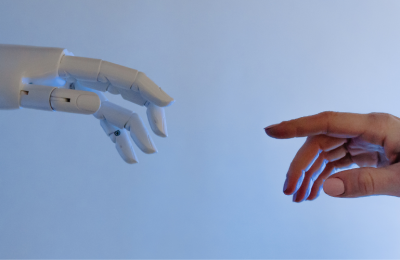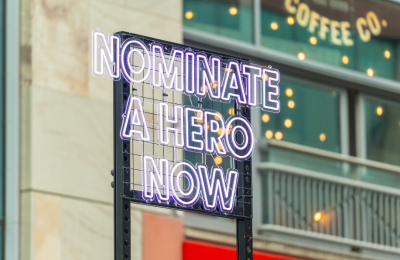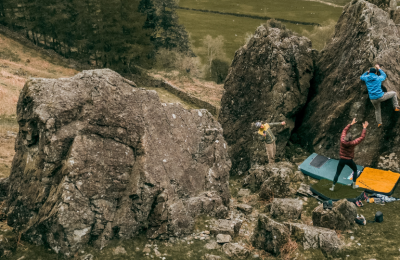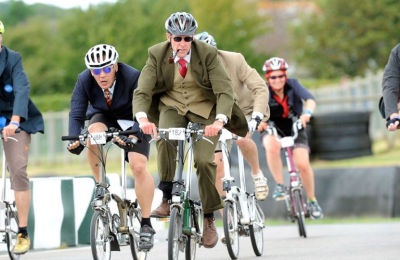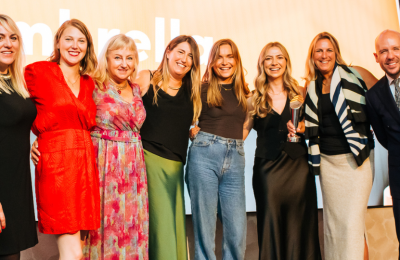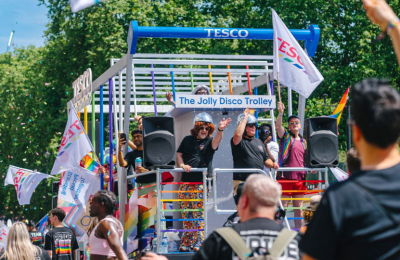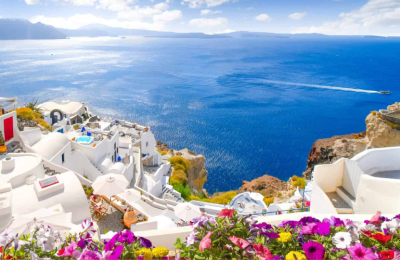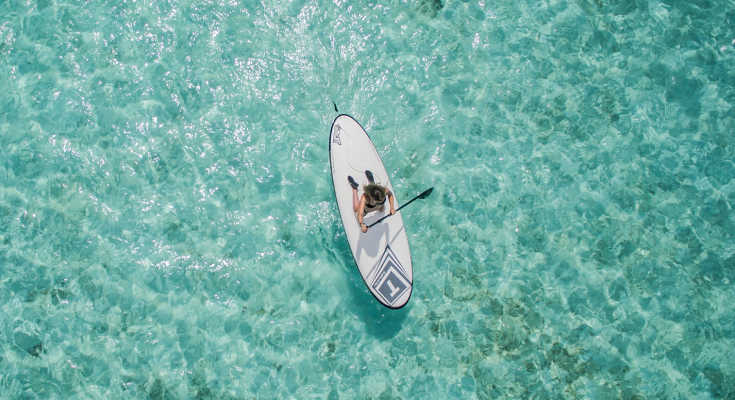We’d all like to know what the future holds right now, wouldn’t we? In business, as in life, facing this increasingly uncertain path ahead means those of us working for, and running, brands, agencies and service partners are all looking for a crystal ball to give us the answers in the midst of a situation the world has never quite experienced before. The expression ‘tragic optimism’ describes a state whereby, in the face of crisis or traumatic events, you protect yourself by not withdrawing but instead, extracting some meaning from what has happened. This article explores what this means for the future of travel. It’s important because travel and experiences are widely used as extremely effective ways to reward or incentive in promotional marketing campaigns. But of course, it’s also important as some of you may find yourselves yearning for a change of scene and wondering when and how will that happen. The opinions below are gathered from across the media from sources I believe to be as accurate as they can be at a time like this.
- Keeping it safe and simple with staycations
We’ve all been forced to stop and look around at what’s right in front of us – and here in the UK, we have incredible culture, coastline, conservation parks and countryside aplenty. Where people might have been compelled to travel to other shores in search of sunshine, due to climate change the weather has become fairly unpredictable and unseasonable everywhere. And because there are no guarantees and predictabilities like before, people have finally woken up to realising what a great choice Britain is for a holiday or short break. With incredible experiences and accommodation options on offer, for many, it’s no longer a second-rate option.
- The convenience of serviced private travel, villas and luxury hotels
The race will be on to reserve the best exclusive-use cottages and villas and private travel itineraries once travel resumes. All the better if places offer fully serviced options and all you need can be brought to you. Avoiding mingling with strangers will be especially appealing for guests in an older age-bracket and those with health issues. The reputable luxury hotel brands known for their highest standards of health and safety and service may be the most appealing – especially when managed by renowned resort operators. Even better if you couple it with a hotel operator who couples this with efforts in sustainability, such as Marriott who have eliminated almost all its small plastic toiletries and Hilton, ranked for the third year running in the Dow Jones Sustainability Index, for having launched its Travel with Purpose 2030 Goals, to reduce carbon emissions and commit to sending zero soap to landfill.
- Fear of flying
Spending time in airports may not be appealing until confirmation of vaccines or cures is on the horizon. People will likely want more space on flights, with fewer people breathing on them, which may mean the layouts of airports and planes will have to be reconfigured. Mandatory self-service testing at airports identifying medical conditions will be de rigueur. There will be an increase in demand for private travel, be it by car or jet. Hopping on short-haul flights so regularly had become too habitual. When we do travel again, for many it will have to feel worth it for all that faff. Our wanderings will (and should be) more considered, cautious and carefully planned, but we will crave next-level adventures more than ever.
- Deferred gratification
Instead of hopping on a low-cost flight for the sake of it, people will spend more time planning, prepping and squeezing the most out of the anticipation, which is the reason why travel will be a perfect fit as prizes, rewards and incentives. Once-in-a-lifetime holidays will become exactly that again. It’s the anticipation of heading off on holiday, more than the experience of having had the trip itself, that releases the endorphins that will lift the mood. Dr Jeroen Nawijn at the Centre for Sustainability, Tourism and Transport in Breda University in the Netherlands published a study indicating that we derive most of our happiness from the expectation of an upcoming escapade. So, imagine if you’ve invested time in making the experience extra sustainable? That buzz is going to be even greater. So, once restrictions are lifted, it’s an ideal opportunity to capitalise on this, particularly when there will be so many people unable to afford to book something for themselves.
- Travel with purpose
People will be all the more judicious about who they give their money to, in the hope that their trips help communities to heal after what we’ve been through. Conservation has been in jeopardy without revenue from tourists. People will do more research and want to support hotels, such as those represented by the charitable organisation The Long Run (who we’ve recently partnered with), which also provides revenue for much-needed cultural and environmental preservation. Singita’s safari lodges in South Africa for example which runs programmes to help empower women and girls through its ‘Safaris with a Purpose’. Cottar’s 1920s Safari Camp in Kenya is a safari lodge that doesn’t just approach conservation the right way; it has set a benchmark with its ‘theory of change’ scheme. Calvin Cottar created the Cottar’s Wildlife Conservation Trust with this framework to layout its manifesto of how it’s helping the local Maasai people benefit from tourism, boosting biodiversity and fostering wildlife conservation. Those are the type of hosts people will begin seeking out and supporting.
- Wellbeing Travel
Wellness was already a growing trend in the travel industry and the growing demand for something more meaningful has led to the opening of many innovative hotels offering different types of wellness – from weight-loss to detox programmes, new fitness regimes to illness recovery, yoga retreats to stress relief. People will want a holiday they don’t need a holiday from and because they’ll want to avoid crowded places, secluded hotels with plenty of space to practice mindfulness outdoors where they can use nature to recharge and reset will be top picks. Initially, this will be in the British countryside, Then, when people feel confident enough to fly again, they’ll be looking for escapes to empty beaches, in places like the Maldives, the jungles of Costa Rica, the rainforests in Bali and on safari in Africa.
And finally…
Last year, anything emitting large carbon emissions became frowned upon and shaming those flying started to become a thing. Yet tourism plays a vital role in economies everywhere and helps in the development of less well-off communities, so it’s not that we should stop flying entirely. Travel is also hugely effective in boosting our own wellbeing and lifting our spirits. Awareness of our impact is going to be hugely important moving forward, as is how often we each fly, where we travel and to whom we give our money. For the coming year, take the time to consider the power of offering a really thought-felt and meaningful holiday as a prize or reward, one that not only rewards those travelling but also helps the communities in location and is considerate to the impact it has on the planet. And if you’d like to learn more, this is a great article on the A-Z of sustainable travel https://www.cntraveller.com/gallery/sustainable-travel-terms
Even more radical in the world of promotional marketing is the discussion around how, why and who brands offer prizes and rewards to in the first place and what should this look like in the future. Currently, they’re awarded for reasons such as buying a product, or for displaying an element of skill, such as getting an answer right in a competition. And just as the travel industry is taking a good, hard look beneath the bonnet of its entire operation, does this need a re-think, too? What should brands be rewarding people for following a pandemic which has not just threatened the physical health of millions, but also wreaked havoc on the emotional and mental well-being of people around the world? If you’re interested in exploring this topic in more detail, I’ll be running a creative session on Zoom in the next few weeks. Anyone is welcome to join, particularly if you work for a brand or agency running this type of activity and would like to innovate. Please email me at justinec@thehappyprizeco.com.
And in the meantime, why not enjoy a little virtual armchair viewing of some of the greatest wildlife spectacles and presenters on earth. Click here to view.


